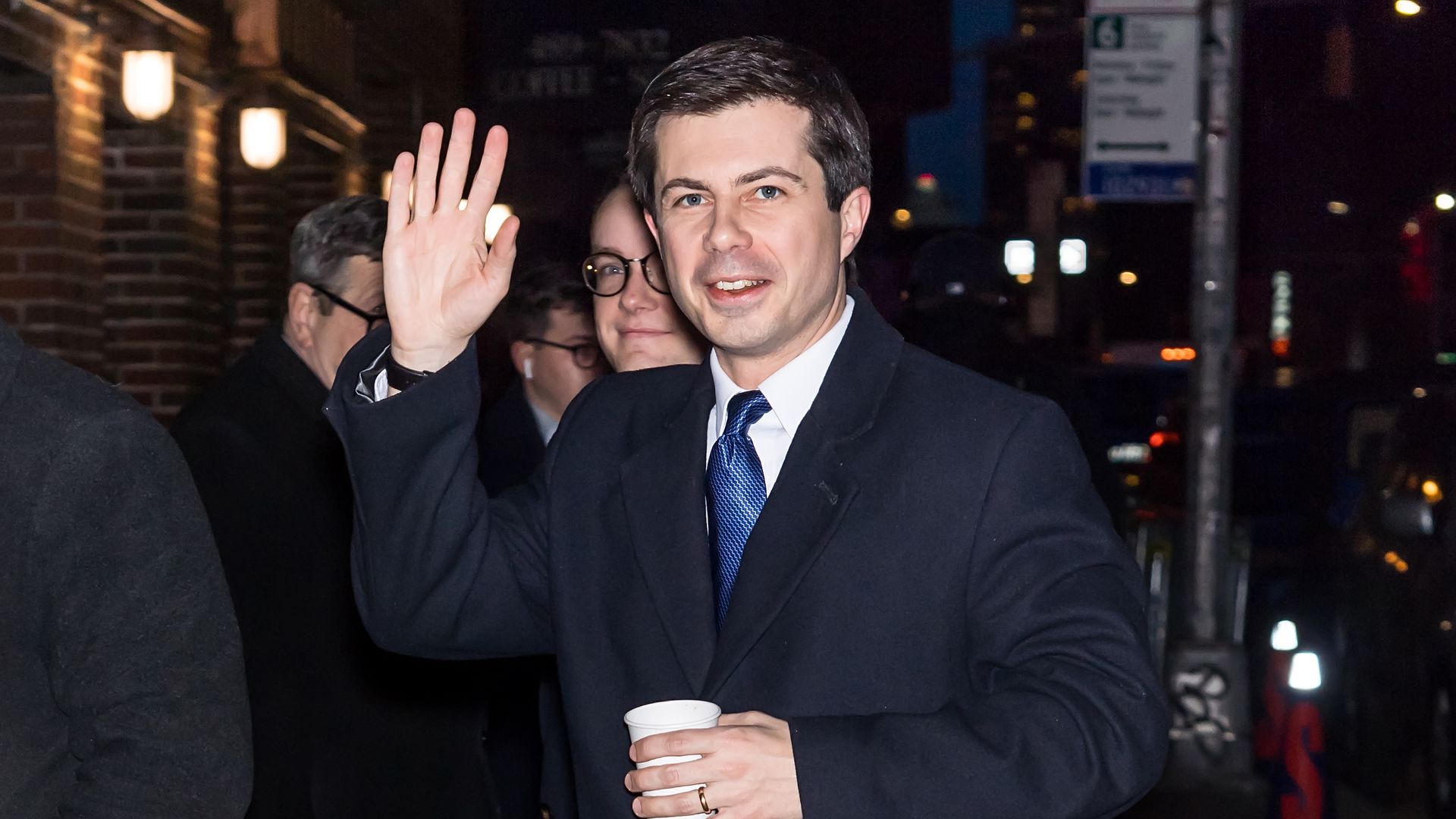“Mayor Pete,” as he’s coming to be known, reported some early first quarter fundraising numbers today and the results are anything but disappointing. The Buttigieg campaign reported raising over $7 million for the first three months of 2019. Precise numbers are not yet available, they’re due in full accounting to the FEC by April 15, but the early numbers point to a massive haul for the little-known Democratic mayor from South Bend, Indiana.
Politico reports on Buttigieg’s success and what it means for his fledgling campaign which is growing bigger by the day:
Democrat Pete Buttigieg said Monday that his presidential exploratory committee raised over $7 million in the first quarter of 2019.
That fundraising haul covers slightly more than two months, from January 23 to the end of March, since the 37-year-old mayor of South Bend, Indiana announced his longshot campaign for president.
“This is just a preliminary analysis, but our team’s initial report shows we raised over $7 million dollars in Q1 of this year,” Buttigieg wrote on Twitter. “We (you) are out-performing expectations at every turn. I’ll have a more complete analysis later, but until then: a big thank you to all our supporters.”
The number is likely to put Buttigieg in the upper echelon of 2020 Democratic presidential hopefuls as they publicize their first-quarter fundraising numbers over the next two weeks.
This is huge for Buttigieg. As the article notes, it may be enough to catapult him into the upper tier of the 2020 campaign and likely begin raising more name recognition and help to produce even greater fundraising results in the second quarter.
Money isn’t everything in a campaign, but it does give candidates something to tout and use as a demonstration of voter and donor enthusiasm. Most people put their money where they think it’ll be a wise investment. Campaigns which don’t have traction or can’t catch on with voters often struggle for funding the same as they do for voter support at the polls.
In contrast to Buttigieg’s success, the campaign of Elizabeth Warren, Democratic Senator from Massachusetts, has hit some fundraising obstacles with disagreement among top campaign aides over whether a decision by Warren to forgo high-dollar fundraisers is the best move for a national campaign.
As CNN reports, there is turmoil in the Warren campaign over finances and the first quarter numbers probably won’t look good:
The New York Times reported Sunday that Pratt resigned after a Valentine’s Day meeting in Washington that eventually “grew heated,” in which Pratt “noted that campaigns often collapse when they run out of money and pleaded with her not to cut off a significant cash stream.”
“He pointed out that winning over wealthy fund-raisers across the country helped build networks that could translate into political support, not just checks,” the Times said. “But Mr. Pratt lost the argument to two of Ms. Warren’s closest advisers, Dan Geldon and Joe Rospars, who made the case about standing apart from the field and freeing up her schedule.”
…
Warren announced in late February that she would forgo fundraisers, dinners, receptions or phone calls with wealthy donors. Warren aides told CNN at the time that the campaign had not held a single fundraiser since the launch of her presidential exploratory committee.
Warren’s campaign tried to put a positive spin on the situation, noting that by avoiding numerous fundraising dinners and events, the Senator has spent more time on the campaign trail with voters:
Ahead of the looming first quarter deadline and concerns that Warren’s fundraising numbers will lag behind those of her competitors, one senior Warren aide insisted to CNN on Sunday that the decision to skip high-dollar fundraisers and outreach was made with full recognition of the trade-offs.
That’s certainly true, yes, but it’s also true that campaigns live and die by the almighty dollar. Candidates typically use the year before the election year to pad their war chests and raise as much money as they can before they’re forced to start spending it.
Once the campaign actually heats up, and voters begin making up their minds, that’s when the money is needed for advertising, campaign infrastructure, get out to vote efforts, and any of a million other expenses incurred by running a national presidential campaign.
April 15 is the deadline for all campaigns to report their first-quarter fundraising results so we expect to see more big numbers in the coming days. Buttigieg was the first out of the gate, and with good reason.
Donate Now to Support Election Central
- Help defend independent journalism
- Directly support this website and our efforts
